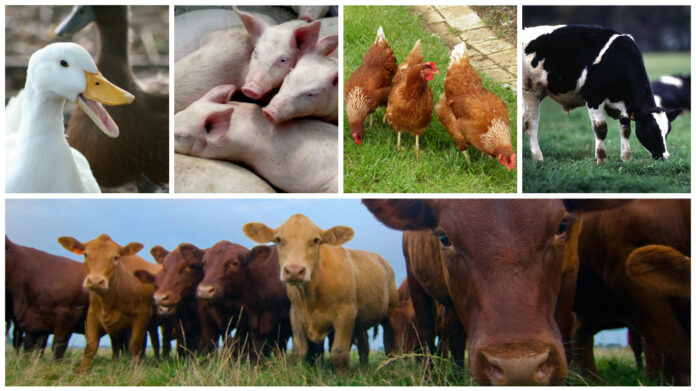Livestock is an option that all serious people who wish to be farmers should consider, but the keeping of animals should not be entered into lightly. Before you buy your first animal, you have to be fully aware that this is a responsibility and a commitment.
Your animals need food and water regardless of the weather, they don’t go into stasis when your vacation comes along, and their needs don’t get put on hold when you get sick. Livestock ties you to the land 24/7/365. If you can’t live this commitment, then keeping livestock is probably not for you. Remember that these are living creatures, and even if they are bound for being slaughtered they deserve your care and the best environment you can provide for them.
With carefully selected ones, a great deal of security can be achieved. You know that chickens and turkeys will provide eggs and meat. The goats will provide a steady supply of milk and meat. Pigs will give meat
However, as a farmer, you need to know that you will have to run goats out of the farm from time to time, that there will occasionally be chickens in the vegetable garden at the worst possible time, that vacations will be tough, and that you will have to find the funds to buy feed even when money is tight.
Your Needs
Once you have determined that keeping livestock fits your needs and lifestyle, you will have to decide what type you will keep. Many factors enter into this choice. These factors include available space, feed requirements, cost of the animals, and what you hope to produce.
You will have to check with the local legislation to determine what types of livestock are permitted in your area
Urban areas
Even if you are stuck in these areas there are livestock options available. Many counties now allow a small number of chickens to be kept in back yards. Rabbits can be raised in a very small space, and are very productive. You might even consider a pond stocked with tilapia.
There are always options for raising them, explore them all. In any setting, look to what you hope to gain from livestock, be it meat, eggs, or dairy products, to inform your decision.
Livestock is an investment. It can be high yield, with dividends paid far into the future, regardless of the economic or social climate. It can also be high risk at times, but with careful management the risks can be mitigated substantially. As with any investment, there are costs involved.








